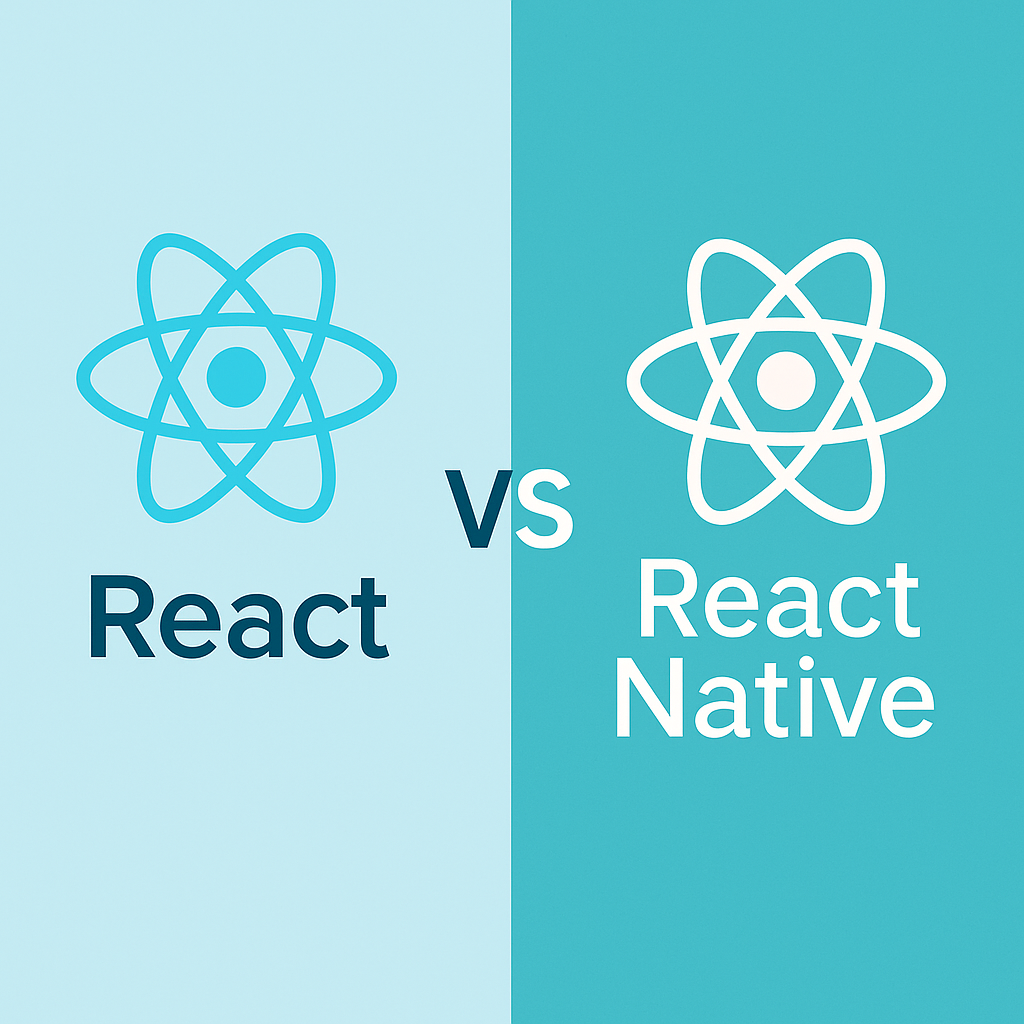React vs React Native
React vs React Native: Key Differences, Advantages, and Which to Choose?
Introduction: React vs React Native?
In the world of app development, React and React Native are two prominent technologies developed by Facebook. While their names are similar, they serve different purposes. React, also known as ReactJS, is a JavaScript library for building user interfaces, primarily for web applications. On the other hand, React Native is a framework that allows developers to create mobile applications using the same principles as React but tailored for mobile platforms.

Difference Between React and React Native
When deciding between React vs React Native, it’s essential to understand their unique functionalities. React, or ReactJS, is a powerful JavaScript library for building user interfaces, primarily for web applications. In contrast, React Native is a framework that allows developers to create mobile applications using the same principles as React.
Key Differences in React vs React Native
- Purpose: The primary purpose of React is to build web applications, while React Native focuses on mobile app development. This fundamental difference is crucial when choosing between React vs React Native for your project.
- Rendering: In the React vs React Native debate, rendering methods differ significantly. React uses a virtual DOM for web rendering, whereas React Native utilizes native components for mobile rendering.
- Learning Curve: If you’re new to development, you might wonder about the learning curve in React vs React Native. While both share similarities, React has a steeper learning curve due to its extensive library ecosystem.
- Code Reusability: One of the significant advantages of React Native is its ability to allow code reuse across platforms. This feature makes React Native a popular choice for developers looking to create cross-platform applications.
What is React?
React is an open-source JavaScript library used for building user interfaces, particularly for single-page applications. It allows developers to create reusable UI components, making the development process more efficient. React uses a virtual DOM to enhance performance by minimizing direct interactions with the actual DOM.
Advantages of React
- Reusable Components: Developers can create components that can be reused across different parts of the application.
- Virtual DOM: Enhances performance by updating only the parts of the DOM that have changed.
- Strong Community Support: A large community means plenty of resources, tutorials, and third-party libraries.
Limitations of React
- JSX Syntax: Some developers find JSX (JavaScript XML) challenging to learn.
- Frequent Updates: The library is constantly evolving, which can lead to compatibility issues.
- SEO Challenges: While React can be optimized for SEO, it requires additional effort.
What is React Native?
React Native is a framework that enables developers to build mobile applications using JavaScript and React. It allows for the creation of cross-platform apps that can run on both iOS and Android using a single codebase.
Advantages of React Native
- Cross-Platform Development: Write once, run on both iOS and Android.
- Native Performance: Apps built with React Native have a native look and feel.
- Hot Reloading: Developers can see changes in real-time without recompiling the app.
Limitations of React Native
- Limited Native Modules: Some features may require custom native modules, which can slow down development.
- Performance Issues: Complex applications may face performance challenges compared to fully native apps.
- Frequent Updates: Similar to React, React Native is also frequently updated, which can lead to breaking changes.
Conclusion: Should You Choose React or React Native?
Choosing between React and React Native depends on your project requirements. If you’re focused on web development, React is the way to go. However, if you’re looking to develop mobile applications, React Native is the better choice.
Both technologies share a common foundation, so learning one can make it easier to learn the other. If you have a solid understanding of JavaScript, diving into either framework will be a manageable task.
For those looking to hire dedicated developers, consider reaching out to Endure Technology Solutions, a leading application development company that can help bring your project to life.
